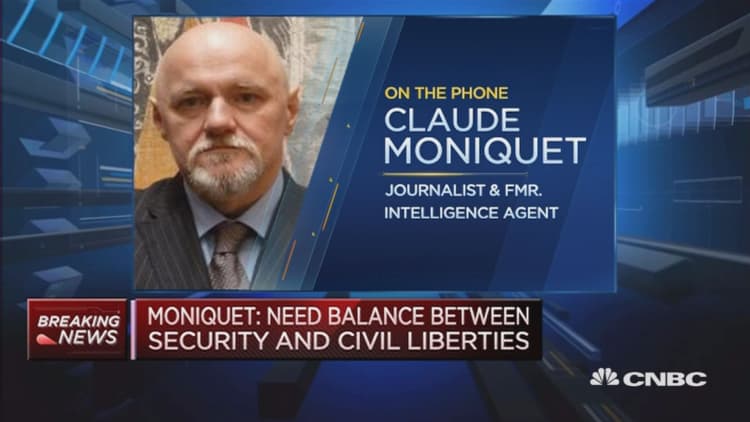
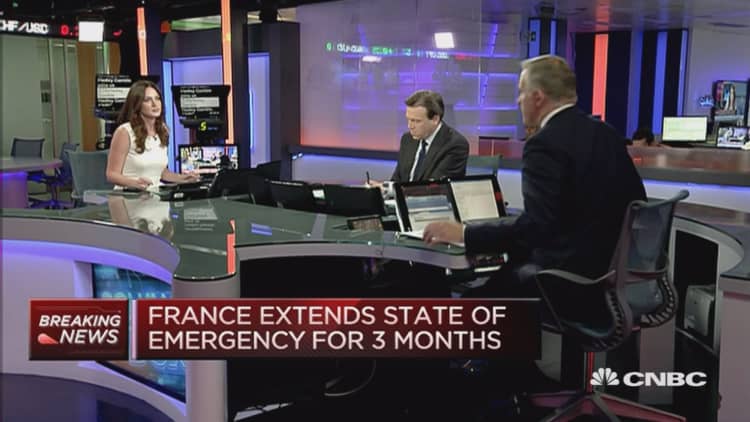
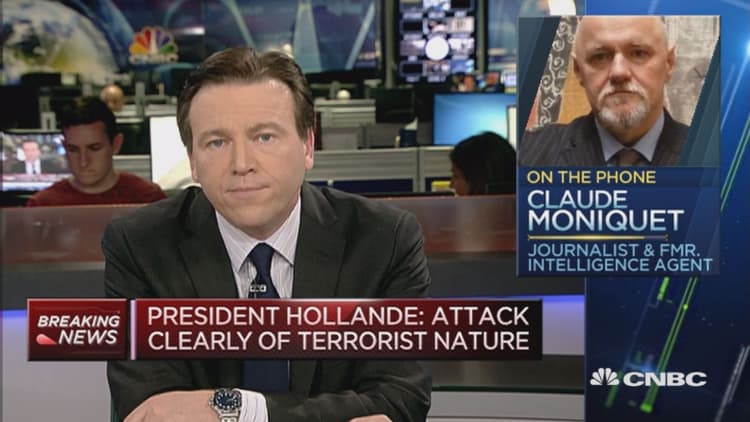
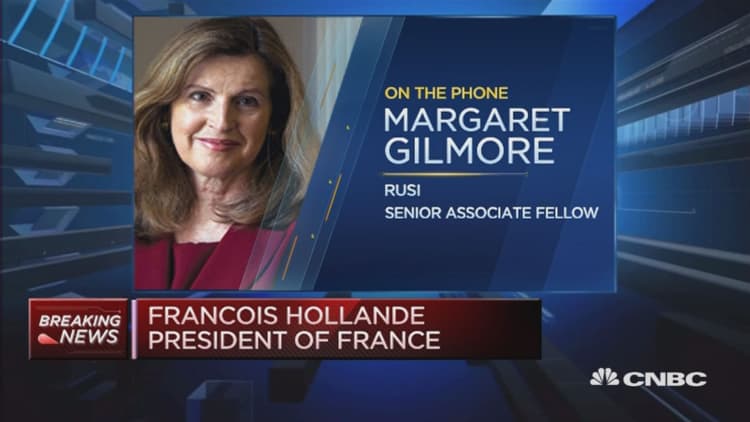

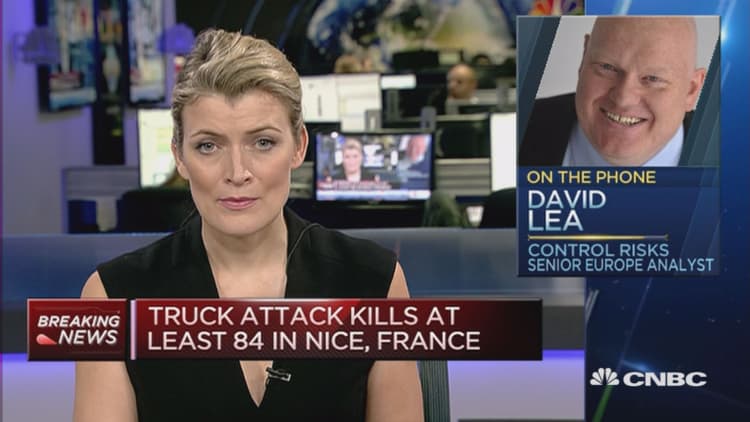
The terror attack in Nice, France on Thursday has underlined the continued problems facing governments and officials despite a major increase in security and intelligence sharing following the atrocities in Paris last year.
French President Francois Hollande said the attack Thursday was undeniably of a terrorist nature. He extended the current state of emergency in the country for another three months which will see more police on the streets. But, security analysts have told CNBC that attacks of this nature are largely unpreventable.
"It's quite impossible to prevent this kind of thing. It could happen anywhere, in any country at any moment," Claude Moniquet, a former intelligence agent at the French Directorate-General for External Security, told CNBC Friday.
Alan Mendoza. executive director and founder at The Henry Jackson Society, suggested that Thursday's attack could have been performed by a "lone wolf" rather than a terrorist cell, adding that the former were "very difficult to guard against."
"There's often, for example, no chatter about what someone might do," he told CNBC Friday.
At least 84 people were killed after the attacker drove a truck at high speed into crowds watching Bastille Day fireworks in the French Riviera city of Nice late on Thursday. Police shot and killed the driver and there has been no confirmation of his motives or whether he was acting as part of a group. NBC News cited a source as saying that the driver, who has not yet been named, was a French national of Tunisian descent. Reuters added that he was known to police for common law crimes but not to intelligence services.
France and Europe as a whole have ramped up security measures following attacks in Paris last year. Europol, the European Union's law enforcement agency, announced a strengthening of its response to terror in January and launched a special task force. In June, the French interior ministry launched a mobile phone app which alerts the public in the event of a terrorist attack. Data analysis has been another area of focus, which one analyst believes has been "amazingly successful."
"They are arresting people and disrupting all the time, but the truth is you cannot guarantee everything and you cannot guarantee the individual acting alone," Margaret Gilmore, a senior associate fellow at RUSI and an expert on government policy for counterterrorism, told CNBC Friday.
"I don't think we should underestimate how prepared the French were because although the carnage was absolutely appalling .... the truth is that it lasted a few minutes and within those few minutes French police were aware of the direction, there were armed officers who were brave enough to stand in front of him and fire at him," she added.
Moniquet added that counterterrorism task forces in France were working, but that the public were just unaware of when a major attack had been foiled.
Even more security in the wake of this attack will surely have to be balanced against civil liberties by the French government. David Lea, a senior Europe analyst at Control Risks, believes there will be a review of public spaces and major semi-spontaneous gatherings.
Retired U.S. Army colonel Jack Jacobs told CNBC Friday that it would only be possible to "minimize" such attacks in the future. He added that this could be done through increased data sharing, intelligence and reduced access to firearms.


